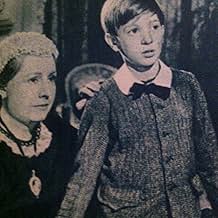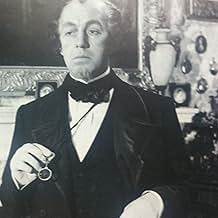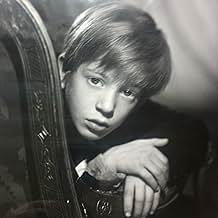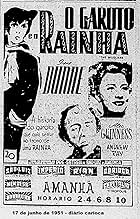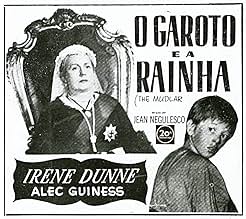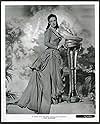CALIFICACIÓN DE IMDb
6.9/10
1 k
TU CALIFICACIÓN
Agrega una trama en tu idiomaAn urchin, scavenging on a bank of the River Thames, finds a cameo depicting Queen Victoria. So taken by her beauty, he is determined to see her and sets off for Windsor Castle.An urchin, scavenging on a bank of the River Thames, finds a cameo depicting Queen Victoria. So taken by her beauty, he is determined to see her and sets off for Windsor Castle.An urchin, scavenging on a bank of the River Thames, finds a cameo depicting Queen Victoria. So taken by her beauty, he is determined to see her and sets off for Windsor Castle.
- Dirección
- Guionistas
- Elenco
- Nominado a 1 premio Óscar
- 2 premios ganados y 1 nominación en total
Nicholas Amer
- Servant
- (sin créditos)
Pamela Arliss
- Princess Christian
- (sin créditos)
Wallace Bosco
- MP
- (sin créditos)
Michael Brooke
- Prince Albert
- (sin créditos)
Ernest Clark
- Hammond
- (sin créditos)
Joe Cunningham
- Member of Parliament
- (sin créditos)
Patricia Davidson
- A Maid in Windsor Castle
- (sin créditos)
Grace Denbeigh-Russell
- Queen's Maid
- (sin créditos)
George Dillon
- Jailer
- (sin créditos)
- Dirección
- Guionistas
- Todo el elenco y el equipo
- Producción, taquilla y más en IMDbPro
Opiniones destacadas
A fine film that is mainly forgotten but still worth seeing, it deals with a homeless boy in Victorian London (1876) who rubs shoulders with two of the leading figures of the time - Queen Victoria and Benjamin Disraeli.
A heart-warming story of historical fiction, directed by Jean Negulesco, it displays the formidable acting talent of Irene Dunne and Alex Guinness. Disreali's audience with the Queen at the start draws us into the main themes of the movie. Andrew Ray, as the boy, is exceptional. The great character actor Finlay Currie plays the role of the Queen's friend John Brown, a crusty, boozy Scot and a close companion of the Queen, who takes a personal interest in the boy. (The character of John Brown was also the subject of the movie from the 1990's - Mrs. Brown, played by Dame Judi Dench.)
The role of the mudlark-a child who scavenges on the banks of the Thames is played by Andrew Ray. It was while doing this,that he found a cameo of the Queen. Illiterate and poverty-stricken, he knows nothing about the Queen but when he finds out who she is, he wants to meet her. The discovery of the child during a banquet at Windsor Castle becomes a national story, in which the Prime Minister (Alex Guinness as Disraeli) uses the issue to underscore the need for social reform and to thus win support for his government's program. The speech in the House of Commons is a high point in the movie, as is the widowed Queen's encounter with the boy near the end of the film.
Colourful conversations between Alex Guinness (Disraeli) and Findlay Currie (John Brown) add sparkle to the film as does a well-lubricated Brown as he takes the boy on a tour of the castle.
At the end, Disraeli and Brown, totally different in character, are drawn together by their love of the monarch. The widowed monarch, at first alarmed by the boy's stealing into her private residence, is moved by a second encounter when she learns that he merely wanted to see her. This also suited the Prime Minister's purpose of giving the monarch confidence to come out of seclusion.
A heart-warming story of historical fiction, directed by Jean Negulesco, it displays the formidable acting talent of Irene Dunne and Alex Guinness. Disreali's audience with the Queen at the start draws us into the main themes of the movie. Andrew Ray, as the boy, is exceptional. The great character actor Finlay Currie plays the role of the Queen's friend John Brown, a crusty, boozy Scot and a close companion of the Queen, who takes a personal interest in the boy. (The character of John Brown was also the subject of the movie from the 1990's - Mrs. Brown, played by Dame Judi Dench.)
The role of the mudlark-a child who scavenges on the banks of the Thames is played by Andrew Ray. It was while doing this,that he found a cameo of the Queen. Illiterate and poverty-stricken, he knows nothing about the Queen but when he finds out who she is, he wants to meet her. The discovery of the child during a banquet at Windsor Castle becomes a national story, in which the Prime Minister (Alex Guinness as Disraeli) uses the issue to underscore the need for social reform and to thus win support for his government's program. The speech in the House of Commons is a high point in the movie, as is the widowed Queen's encounter with the boy near the end of the film.
Colourful conversations between Alex Guinness (Disraeli) and Findlay Currie (John Brown) add sparkle to the film as does a well-lubricated Brown as he takes the boy on a tour of the castle.
At the end, Disraeli and Brown, totally different in character, are drawn together by their love of the monarch. The widowed monarch, at first alarmed by the boy's stealing into her private residence, is moved by a second encounter when she learns that he merely wanted to see her. This also suited the Prime Minister's purpose of giving the monarch confidence to come out of seclusion.
When I saw that Irene Dunne was cast as Queen Victoria, I was ready to hate the film. After all, she seems about as much like this historical figure as Shirley Temple! There was absolutely no way they could make this work. Well, was I wrong...she was terrific and they managed to make her look like the middle-aged monarch. I was amazed.
The film begins on the filthy bank of the Thames River in London. Poor, wretched boys work the bank as 'mudlarks'--kids who will scour the shore for anything of value. This is much like the pathetic kids in places like India and Brazil who live among the garbage and scavenge for a meager living. A boy sees a cameo of the queen. He has no idea who she is but is captivated by how beautiful she looks. When he does learn it's the queen, he decides to go to Windsor Castle and try to see her. By some strange circumstances, he is able to make it inside and is eventually discovered. Where this fantasy story goes next is something you'll just need to see for yourself, but in some ways it's like another fictional story about the British monarchy, "The Prince and the Pauper". But it also has a bit of the Dickens touch--as there is quite an emphasis on social responsibility and the poor.
The acting is just lovely. Dunne is perhaps at her best, Alec Guinness is his usual amazing best and Finlay Currie, though not exactly a mirror image of the man he played (John Brown), was lovely as well. A great script, nice direction and quality all around make this a neat little fantasy film...and one that can be enjoyed by all ages.
The film begins on the filthy bank of the Thames River in London. Poor, wretched boys work the bank as 'mudlarks'--kids who will scour the shore for anything of value. This is much like the pathetic kids in places like India and Brazil who live among the garbage and scavenge for a meager living. A boy sees a cameo of the queen. He has no idea who she is but is captivated by how beautiful she looks. When he does learn it's the queen, he decides to go to Windsor Castle and try to see her. By some strange circumstances, he is able to make it inside and is eventually discovered. Where this fantasy story goes next is something you'll just need to see for yourself, but in some ways it's like another fictional story about the British monarchy, "The Prince and the Pauper". But it also has a bit of the Dickens touch--as there is quite an emphasis on social responsibility and the poor.
The acting is just lovely. Dunne is perhaps at her best, Alec Guinness is his usual amazing best and Finlay Currie, though not exactly a mirror image of the man he played (John Brown), was lovely as well. A great script, nice direction and quality all around make this a neat little fantasy film...and one that can be enjoyed by all ages.
I saw the Mudlark when it first came out in 1950 and have not seen it since. I remember the Mudlark as a very charming film and would love to see it again. If anyone is aware of available Video Tapes (NTSC) or DVDs of the Mudlark, please let me know. I remember the stirring performances of Alec Guinness (always top rate) and Finlay Currie. The little boy who plays the role of the Mudlark is really endearing and you pull for him in his quest to see the reclusive Queen Victoria. Thy British film industry of that time certainly was able to come up with some real classics. The ten years following WW 2 must have been the pinnacle of British film. I can't understand how such a first rate film can just disappear...Jim Mills
I found this on YouTube and I'm pleased I did. This is a black and white film from the good old days of movies, before CGI, profanity and mindless action were essential to a movie's credibility; when good acting and intelligent writing were much more important. I'm being overly cynical, I know, but you get the point.
The Mudlark is an enjoyable little film, with a cast of fine British actors of yesteryear who are a pleasure to see in action once more. The plot of this may be a bit silly in places, and sometimes it gets a bit slow (a half baked and totally unnecessary romantic sub plot doesn't help), but for the most part this is a charming movie and should be enjoyed by adults and older children alike.
The Mudlark is an enjoyable little film, with a cast of fine British actors of yesteryear who are a pleasure to see in action once more. The plot of this may be a bit silly in places, and sometimes it gets a bit slow (a half baked and totally unnecessary romantic sub plot doesn't help), but for the most part this is a charming movie and should be enjoyed by adults and older children alike.
This is one of those delightful post-war British films that once seen is hard to forget. The story centers around Wheeler, a London "mudlark" (an orphan who scavenges the Thames at low tide), who, upon finding a cameo of Queen Victoria, sets off to Windsor to see "the mother of England." Victoria is secluded as the "widow of Windsor" and a desperate Disraeli is vainly attempting to urge her to resume public duties. However, when Wheeler finally gets to meet his Queen, Victoria is moved to return to her public life. Wonderful performances by Irene Dunne as Victoria, Alec Guinness as Disraeli, Finlay Currie as John Brown and Andrew Ray as Wheeler, the mudlark. If only Fox would release this on DVD or VHS!
¿Sabías que…?
- TriviaAlec Guinness' speech to Parliament, in the role of Benjamin Disraeli, is delivered in an unbroken, single take of nearly seven minutes of impassioned dialogue.
- ConexionesVersion of Victoria the Great (1937)
- Bandas sonorasSilent Night, Holy Night
(1818) (uncredited)
Music by Franz Xaver Gruber
Lyrics by Joseph Mohr
Sung by Carolers during the Christmas season
Selecciones populares
Inicia sesión para calificar y agrega a la lista de videos para obtener recomendaciones personalizadas
- How long is The Mudlark?Con tecnología de Alexa
Detalles
- Fecha de lanzamiento
- Países de origen
- Idioma
- También se conoce como
- The Mudlark
- Locaciones de filmación
- Productora
- Ver más créditos de la compañía en IMDbPro
- Tiempo de ejecución1 hora 39 minutos
- Color
- Relación de aspecto
- 1.37 : 1
Contribuir a esta página
Sugiere una edición o agrega el contenido que falta

Principales brechas de datos
By what name was El diablillo y la reina (1950) officially released in India in English?
Responda
